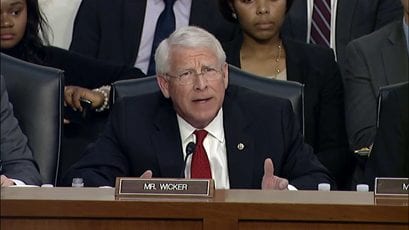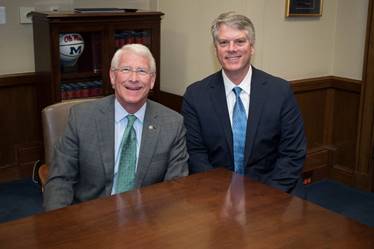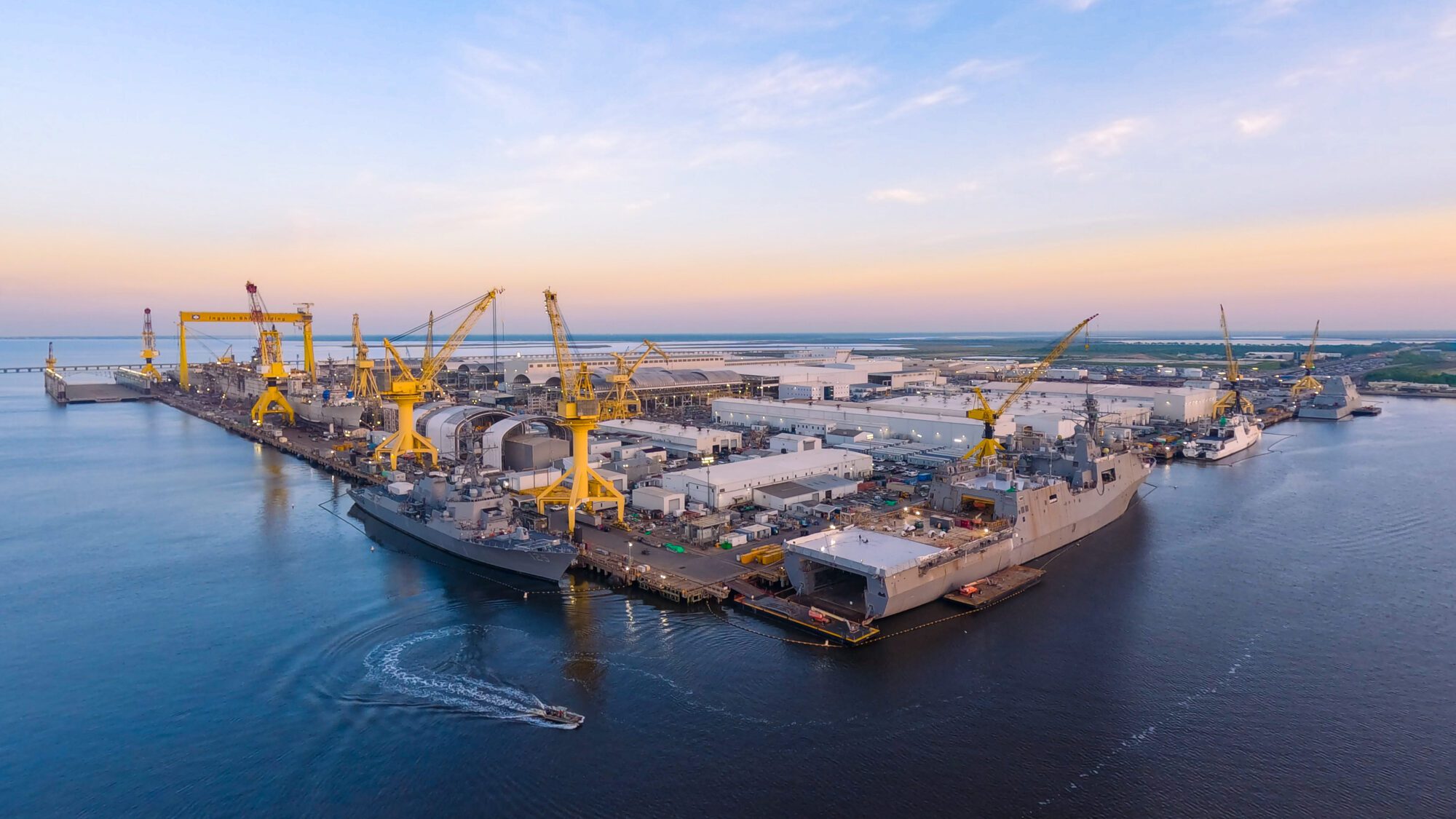
Miss. Senator Highlights State’s Progress Since Hurricane Katrina
U.S. Senator Roger Wicker, R-Miss., a senior member of the Senate Commerce Committee, today chaired a hearing to examine the status of federal agencies’ recovery from last year’s hurricane season, share lessons learned from previous large storms, and assess readiness for this year’s hurricane season.
Wicker highlighted the experiences of Mississippians who have “rebuilt our coasts after Hurricane Katrina stronger than before.”
Wicker also reminded the committee of the pending nomination of Barry Myers, President Trump’s nominee to be the National Oceanographic and Atmospheric Administration (NOAA) Administrator. Mr. Myers’s confirmation continues to be held up in the Senate.
The hearing featured testimony from Mr. Jamie Miller, the Deputy Director for Governmental Affairs and Chief Innovation Officer for the Mississippi Development Authority. Mr. Miller discussed how Mississippians, in the wake of Hurricane Katrina, rebuilt using hurricane mitigation techniques. These investments paid off when Hurricane Nate made landfall in October 2017.
Click here to watch Wicker’s opening remarks, or read a full transcript below:
“I’m happy to chair this timely hearing after the 2017 hurricane season and hurricanes Harvey, Irma, Maria, and Nate. My home state of Mississippi is especially vulnerable to natural disasters, and the memory of Hurricane Katrina still remains fresh.
“I want to take this opportunity to remind the Committee that Barry Myers, President Trump’s nominee to be the NOAA Administrator, still awaits confirmation from the Senate. As this hearing progresses, we should be mindful of that.
“Mr. Myers long, successful career with Accuweather, a private weather entity, provided him with expertise to lead our federal efforts on creating the world’s best weather model.
“Precise weather forecasting provides great safety for Americans who face the threat of hurricanes and other natural disasters. Mr. Myers has pledged to recuse himself from any conflict of interest. It is certainly past time for him, and many other Trump nominees, to be confirmed.
“One thing we know for certain, Americans have the resolve to rebuild after hurricanes. Mississippians recovered, thanks to the generosity of many heaven-sent good Samaritans, and we rebuilt our coasts after Hurricane Katrina stronger than before. The resolve continues to be evident in the aftermath of Hurricanes Harvey, Irma, and Maria.
“In this light, an important topic of this hearing is – ‘Can we rebuild better?’ Can we rebuild in order to withstand future storms?
“Hurricane Nate, a Category 1 hurricane that made landfall twice in Mississippi, showed that we can absorb the impacts from some serious storms. In the past, a Category 1 hurricane would have been very serious. But the investments and decisions made on the front end, learning from Hurricane Katrina, gave us the ability to prevent the worst of damages.
“Hurricanes like Harvey, Irma, and Maria require us to prepare. Just as we tell our coastal residents to prepare for a hurricane, it is vital to have federal agencies such as NOAA, the Coast Guard, and the NTSB ever at the ready.
“Federal bureaucracies are not always efficient, and there is always work to be done to streamline and expedite federal actions.
“We must be ready to respond to these disasters quickly and efficiently. This past hurricane season, there were successes in improved forecasting from NOAA and heroic responses by the Coast Guard and other agencies.
“We need to continue to plan, so we can respond quickly should sequential devastating storms stretch our resources to the maximum.
“It is important to tap into the networks of our state emergency responders and volunteer networks such as churches and the American Red Cross.
“In the past, storms of this magnitude caused greater damage than was seen in 2017. So, we’re making progress. I am hopeful that hearings like this can continue to minimize the impact to lives, property, and communities from these hurricanes. Things can be replaced, but people cannot.”











